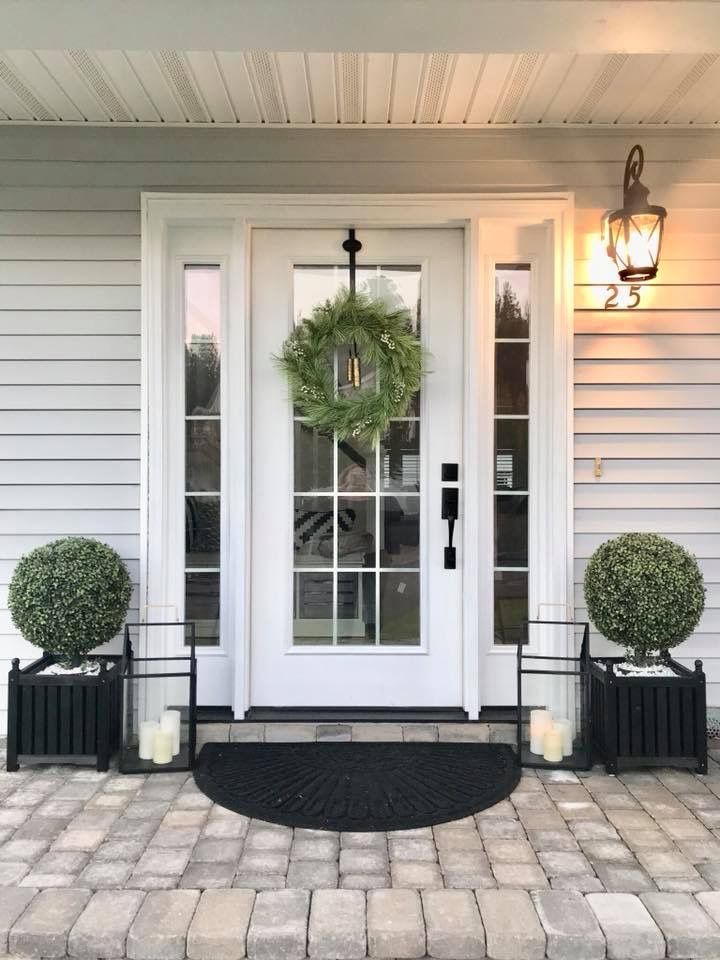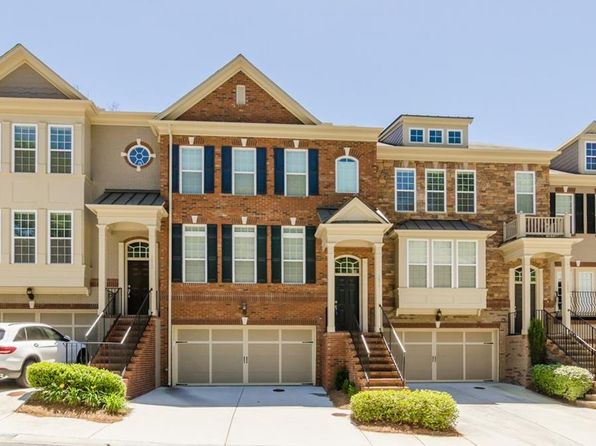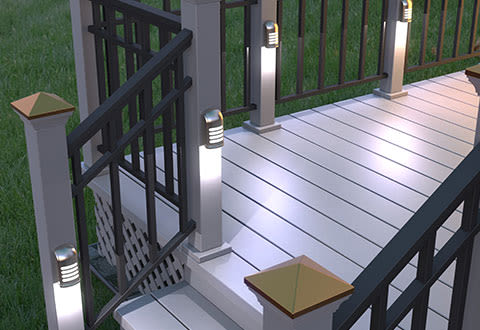
If you are thinking about buying a home, whether it be a single-family house, condo, townhome, or investment property, it is important to choose the right property for you and your family at an affordable price.
Downsizing or Upsizing? Guide to Purchasing Your New Home
Everyone’s process is different. Yours could take a short time or a long time, depending on your goals, constraints, personal style, and the market in your area.
For about 80% of home buyers, it’s the single largest financial transaction of their lives.

Finding the right home, and making a prudent financial investment is more involved than just “buying right.” You also need to finance it right.
If you haven’t done so already, check your credit reports right away. This gives you time to correct errors or strengthen your credit scores.
Your Credit Report History is Essential to Buying a Home
Once you get your credit reports from the 3 credit bureaus—Equifax, Experian, Transunion—you will want to review them carefully.
Credit reports may have mistakes. And if there are mistakes, you are the only one who is likely to find them.
Review each section of your credit report. Do this for each credit report.
Note: This site has a marketing affiliate relationship with advertisements. I may receive a small referral fee or commission if you sign up for services or purchase a product. This allows me to continue to create content.
How to Determine Your Home Needs and Your Wants
Two things you need to consider here: Your NEEDS…and your WANTS. They’re two very different things.
You may need 5 bedrooms because of your children or live-in relatives.
You may need a 3-car garage because of your three automobiles.
You may need a basement for your home office or extracurricular activities.

A great way to get a handle on your wants is to take a good look at your present home and ask yourself:
- What do I like about my current home?
- Do I like the common area layout or open floor plan?
- Do I like the kitchen and dining areas?
- Do I have enough bathrooms?
- Is there enough backyard space?
- Do I have room for a home office, kids playroom, pets, or entertainment space?

After assessing your current living situation, you might find that your NEEDS are fairly basic.
It’s the “WANTS” that take a little more time to clarify.
If you’re a husband and wife looking for a home, start writing down what each of you want and desire in your new home.
You’re both going to live in the home, so you better understand what the other is looking for.
This will help eliminate many disagreements down the road. You will both understand what the other wants, and why they want it.
List of Needs to Consider When Buying a New Home
Here is a list of NEEDS you should consider before looking for your new home.
- General Price Range
- Approximate Size of the Home (Square Footage); a reasonable range.
- General Location, Area, or Subdivision
- Number of Bedrooms Required
- Number of Bathrooms You Need
- Style and Layout of Your New Home
- School Requirements or Districts
- Travel Distance Back and Forth to Work
I recommend you RANK each feature in terms of its importance to you and your spouse.
For example, a well-designed gourmet kitchen may rank high with the wife, while having a workshop in the garage or basement may rank high with the husband.
Try to understand each other’s priorities. For example, you might find that having a game room for entertaining family and friends ranks high with both of you.
Ranking each feature will also show you areas you may need to eliminate because of price constraints.
By having each person rank the importance of the features they want, you won’t be eliminating a high priority item and putting additional stress on an already stressful time.
Decide How Much You Can Afford to Spend on a Home
Like it or not, there are two guidelines bankers and mortgage lenders use to determine how much loan you can afford.
The first guideline is the Payment-to-Income Ratio. This guideline compares your income, or your total household income, to the amount of mortgage payment you are considering.
The second guideline is the Debt-to-Income Ratio. Debt refers to ALL the major monthly payments other than your mortgage payment. To arrive at this amount, the lender will consider items such as:
- Your Car Payment(s)
- Your Credit Card Debt and Payment(s)
- Any IRS Liens or Payments Due
- Any Other Payments and Debts You Have (Boat, Vacation Home, Rental Property, etc.)
Then, they will compare your total debt to your ability to make current payments with your new home loan added into the equation.
Only you can determine how much you want to pay each month and upfront for your down payment and closing costs.
Mortgages are complex, and there are lots of possibilities.
Each mortgage company sets different limits on your Debt-to-Income Ratio, which is why it is critically important to find the right lender.
Explore loan terms, types, and interest rate types. Talk to lenders and ask questions.
If you spend 2 or 3 days to find a loan that saves you $40,000 to $150,000 over the long-term, Your Time is WELL WORTH IT!
Get a Loan Pre-Qualification or Pre-Approval Letter
In today’s competitive real estate market, it is crucial that you pre-qualify for a loan. This way you will know what price range to be looking for.
A pre-approval letter helps show sellers that you are a serious buyer—but it does not commit you to a lender.
Also, most real estate agents require a pre-approval letter before showing houses.
Make Sure Your Tax Returns are Up-to-Date
Mortgage Lenders will request your latest tax returns to verify proof of income.
How to Get the Best Interest Rate on Your Mortgage Loan
There are no general rules of thumb about financing your home.
Each case is different, and your personal financial circumstances will have an impact on how much home you can afford to purchase.
Your ability to afford a home will be related to a number of items. They are:
- The PRICE of the Home.
- Your DOWN PAYMENT on your home, and thus the amount financed.
- The INTEREST RATE and POINTS of your loan; the amount a bank or lender charges you for the money.
- The TERM of your Loan: 15-Year Mortgage or 30-Year Mortgage.
- The Overall TYPE of Loan. Most common is Fixed vs. Variable Rates.
Improve Your Credit Score
Lenders tack on slightly higher interest rates for borrowers with a credit score of less than 740.
The rates are a bit higher for every 20-point difference in your credit score, so making changes such as paying off debt and paying all your bills on time before you apply for a loan can help.
Increase Your Down Payment
Mortgage interest rates are also based on your loan-to-value ratio and will be lower if you make a down payment of at least 20 percent.
If you can manage to make a down payment of 30 percent or 40 percent, your mortgage interest rate will be even lower.
A Lower Interest Rate = Lower Mortgage Payment = Cash Saved!
Finding Your Ideal Home in the Right Location
It’s now time to find not only a home that fits your needs, but a home that will be a good investment.
What are some of the things you should look for?
Well, the first thing I always look for is what I call “siting.” Siting involves evaluating three areas: Location, Lot Siting, and Home Siting.
LOCATION: The general location of the home you’re considering could determine how happy you’ll be living there, and what kind of an investment you’re buying.
LOT SITING: Lot siting has to do with WHERE your particular lot is located in the subdivision.
HOME SITING: Does it capture better views than other lots in the area?
Does it have curb appeal? Is it more private, or shaped better?
Is it near a loud street? Is there a common area?
Is there a balance between the front and back yards?
Do you see any drainage problems because of where the home has been located on the lot?

#1 Tip for First-Time Home Buyers
Here’s an Important TIP That Will Almost Always Make You Money
Buy the Mid-Range Home In the Best Neighborhood You Can Afford
The better the neighborhood, the better the appreciation for you over time.
And, if you buy the mid-range home, the home will “generally” appreciate faster and greater than a higher priced home in the same area.
Plus, you will most certainly spend money renovating, updating, and decorating your new home, and you don’t want to get “upside down” on your home’s value after spending money for improvements.
Your Real Estate Agent will be valuable with this process. After receiving your pre-approval letter, your agent can begin locating properties for you.
Typically, a Buyer’s Agreement is required. Most real estate agents will not begin to show you houses without having a signed agreement stating that they represent you in the purchase transaction.
When you find your perfect home, it is essential to have Your Real Estate Agent submit a purchase offer on your behalf.
As a Buyer’s Agent, Your Realtor represents your best interest and will negotiate on your behalf.
The Seller’s Agent for the home represents the seller and the seller’s best interest.

Viewing Homes on the Market For Sale
Think through these things as you view each prospective home.
What is your initial reaction of the home as you approach it from the street?
This is called curb appeal, and it has a great impact on the value of the home.

- Notice the areas around the home? Are they well maintained? Is the landscaping groomed?
- Take a look at the structure of the home.
- As you go through the home, think about the floor plan. Is it functional?
- Do the common areas flow the way you want them to?
- Are the halls narrow and long, or are they open?
- How far will you have to carry the groceries from the garage?
- Are the rooms the right size and height for your desires?
- If there have been any additions, were they done professionally? Do they fit with the flow and style of the home?
Submitting Your Home Purchase Offer
After finding your perfect home, it’s time to submit a purchase offer. Your Realtor will handle all the paperwork and advise you along the way.
The real estate marketplace is highly competitive. Many homes are receiving multiple offers. In prime areas like Metro Atlanta, homes are selling fast.
So, you decide to purchase the right home in the right location for you and/or your family. Your Realtor will represent you by preparing the purchase agreement and negotiating the deal.
Thankfully, You Have Been Pre-Approved for a Mortgage because the first question any home seller will ask when an offer is presented is “Is Your Buyer Approved For a Mortgage?”
And rightfully so! The seller does not want the deal to fall through because you could not get financing.
You Will Have Much More Power to Negotiate Price and Terms When You’re Financially Qualified!
A Serious Buyer always has more influence to negotiate. When you have money behind you, the seller knows you’re serious.
When submitting a Purchase Offer, be prepared to submit earnest money. Your Real Estate Agent will advise you of the proper amount.
Typically, the earnest money deposit is 10% of the Home’s Sales Price. So, if you are submitting an offer for $300,000, your earnest money deposit will be $3,000.

During the real estate transaction, one single element will determine the outcome.
How MOTIVATED is the Seller to Sell the Property
And, How MOTIVATED Are You to Buy the Home?
When the Seller Accepts Your Offer, their home comes OFF the active market. If you fall through, it costs them time and money.
Your first offer may not be accepted by the seller. That’s okay. Keep looking until you find your home.
Your Real Estate Agent will continue searching for a property you might like and will notify you immediately when new homes come on the market.
Once your purchase offer has been accepted by the seller and you have chosen a loan and a lender, it’s time to focus on the closing process.
Work with Your Real Estate Agent and Mortgage Lender
Once your Realtor helps you find a home, let your lender know you are ready to proceed. Submit your documents and get ready to close.
Why You Should Use a Buyer’s Agent to Find Your Home
- A good agent knows the area you want to buy in because she/he is constantly looking at homes.
- A good agent can spot trouble for you. He or she will be experienced at looking at homes and will see things you might not see.
- A good agent will greatly simplify the home buying process.
- A good agent will give you motivated, reliable financing sources.
- A good agent will refer you to proven service providers that you will need.

Understanding Homeowner Association Fees
If you are purchasing a condominium, co-op, townhouse, or a single-family home neighborhood or subdivision with a homeowners’ association, you will likely have additional fees that are usually paid separately; generally on a monthly basis.
It’s Time to Close on Your New Home
At this point, you’re probably pretty clear that in order to find the Right Home and Save Money, you need someone competent and professional to represent YOUR INTERESTS.
You’ll need to provide your lender with additional documents, so stay alert for requests and notifications.
You’ll also need to get a home inspection and shop for homeowner’s insurance.
Please Don’t Buy a Home Without Having It Thoroughly Inspected.

Schedule a Home Inspection
Once the seller has accepted your offer and your mortgage lender has started the mortgage loan process, schedule a home inspection appointment as soon as possible.
You want to have plenty of time to resolve any issues or problems.
Inspections are for Your Protection
- If there are serious flaws, such as a cracked foundation, roof or basement leaks, etcetera, you may decide that you don’t want to buy this particular home after all. If your purchase contract is contingent on a satisfactory inspection, you should be able to cancel the sale without penalty.
- If there are parts of the home that are damaged or worn out, you may want to negotiate with the seller to have these fixed before you move in or give you credit for the cost of the repairs.
You want to know as soon as possible if there are any significant problems with the home so you can decide whether or not you still want to buy the house.
Also, if additional inspections are needed, you’ll want to have plenty of time to get them completed.
You may be able to negotiate with the seller or cancel the sale based on the inspection.
If repairs are needed, you may want to negotiate with the seller about who should make or pay for the repairs.
Depending on the terms of your purchase contract and local market conditions, the seller may or may not agree to pay for the repairs.
Suppose your purchase contract is contingent on a satisfactory inspection. In that case, you have the right to cancel the sale without penalty if you are not satisfied with the inspection results.
Signing Your Closing Documents is the Final Step

Review your closing documents in advance to make sure there are no errors, and everything matches your expectations.
Take time to review them carefully. Once you sign, you are responsible for the mortgage loan.
I hope the information above has given you helpful advice finding, buying, and financing your next home.
Buying and Selling Real Estate can be tricky business. Working with a professional Realtor can save you from wasted time, headaches, and stress.

Are You Actively Searching for a New Home in Metro Atlanta?
If you’re thinking about buying property in the Atlanta or surrounding area, contact Terina Lambright at 8th & Oak Realty (404) 337-9208. She will guide you through the process of purchasing, even if it’s your 1st, 2nd, or 3rd home.
- Residential Single-Family Homes
- High-Rise and Low-Rise Condominiums
- Brownstones, Townhomes or Townhouses
- Duplex and Multi-Family Investment Properties

There is a right way, a wrong way, and the best way of getting the right house, in the right location, and at the right price.
You need accurate information from Your Realtor that will guide you through the jungle of home buying with ease and success.
Popular Metro Atlanta Areas and Suburbs
| Metro Atlanta | Chamblee | Doraville |
| Dunwoody | Alpharetta/Johns Creek | Marietta |
| Roswell | Sandy Springs | Stockbridge |
| Snellville | Avondale Estates | Brookhaven |
| Buckhead | Decatur | Grayson |
| Lithonia | Loganville | Lawrenceville |
| Peachtree Corners | Smyrna | Stone Mountain |
| Tucker | Vinings | Virginia Highlands |
| Norcross | Conyers | Duluth |
Specialties: Buyer’s Agent | Seller’s Agent | Relocation | Property Management Call (404) 337-9208
Terina represents Buyers & Sellers in the Metro Atlanta Area and Nearby Suburbs.

Are You Facing Any of These House-Hunting Situations?
- You’re looking to make one of the most important purchases of your life and you don’t want to get burned because of not knowing who you can trust, or making a mistake that could cost you thousands of dollars later.
- You do not know the values in the marketplace and you want to be assured of getting the most that you can for your money, without having any regrets after you have closed escrow.
- You’re feeling out of control because there are so many unanswered questions. Making it hard to know where to start.
- Is there an easy way to buy a home?
Terina’s enthusiastic can-do attitude and caring nature are ideal for identifying each client’s desires and skillfully guiding them to fulfill their real estate goals.
Terina is often described as detail-oriented, proactive, and fun to be around.
She will negotiate the best possible deal for you so you can avoid costly traps and pitfalls.
She will coordinate all real estate transactions, paperwork, inspections, appraisals, escrow and title services so you can feel confident and focus on other important tasks during your home-buying process.
She aims to make your home-buying experience hassle-free.
Terina feels incredibly fortunate to work with amazing clients who become her friends and a vital part of her network.
Let Terina Help You Find Your Perfect Home Today! She will help find the Right Home, at the Right Price, in the Right Location for you. Atlanta, Georgia 8th & Oak Realty
NOTE: There is no cost to you to use a Buyer’s Agent. Real Estate Agent commissions are paid by the seller, which is then split between the selling agent and the buying agent.

MoneyMatters: Insider Tips to Buying a Home in the Right Location at the Right Price
- Essential Christmas Songs for the Holiday Season
- Stylish Outdoor Fire Pits and Patio Heaters
- How to Create an Ergonomic Workspace at Home or Work
- Benefits of Humor and Laughter in Life
- Balancing Success: Practical Self-Care Strategies for Entrepreneurs
- Guides to Backpacking, Mountain Biking and Hiking Georgia
- Ways to Pay It Forward and Change Lives
- Email Marketing Campaigns for Small Business Owners
- Guide to Martha Stewart’s Hugely Successful Concept and Art of Presentation
- Guides to Backpacking and Hiking Canada
- Timeline of Events Leading to Rudy Giuliani’s Legal Troubles
- Backpacking, Hiking, and Camping Safety Guides
- Moving and Relocating to Atlanta: How to Find Your New Home
- Money Matters: Insider Tips to Buying a Home
- Renting vs Owning a Home
- Ways to Build Positive Credit
- Do It Yourself Credit Improvement Process
- A Trail of Clues to the Murder of Nicole Brown Simpson
- How Centra Tech’s Bitcoin Cryptocurrency Scheme Was Hatched and Discovered
- Starting a New Business as a New Mother: Tips for Thriving
- Guides to Backpacking and Hiking the Carolinas
- Guides to Hiking New York State and New Jersey
- Guides to Hiking California and Nevada
- The Tragic Murder of Rebecca Postle Bliefnick
- How a Grad Student Murder Spotlights Female Joggers’ Safety Concerns
- How Massive Commercial Financial Fraud Was Discovered in Singapore
- Did Billy Ray Turner Conspire with Sherra Wright to Kill Former NBA Player Lorenzen Wright?
- How Operation Rebound’s 7-Year Cold Case was Finally Solved
- Mastering DIY Marketing: Essential Skills and Strategies for Small Business Owners
- How a GeoLocation Expert Tracked a Killer
- Transgender Law Enforcement Officer Denied Medical Coverage for Gender Dysphoria
- How Video Surveillance Cameras Helped Identify and Track a Killer
- How Investigators Solved the Murder Mystery of Army Sergeant Tyrone Hassel III
- How a Love Obsession Led to the Brutal Murder of Anna Lisa Raymundo
- How Stephen Grant Tried to Get Away with Killing His Wife
- How Unrelenting Catfish Schemes Led to Fatal Suicide
- How Pain Clinic Owners Turned Patients’ Pain into Enormous Profits
- How to Recognize a Pain Pill Mill in Your Community
- How Authorities Have Shuttered Georgia Pain Clinics Massive Pain Pill Distributions
- How Pain Doctors Massive Opioid Prescriptions Lead to Pain Pill Overdose Deaths
- How Authorities Are Dismantling Pennsylvania Pain Clinics Prescribing Excessive Amounts of Opioid Pain Pills
- How Authorities Are Dismantling Alabama Pain Clinics Pain Pill Schemes
- How the Gilgo Beach Homicide Investigation Has Progressed
- How NYC Architect was Linked to Three Women’s Remains Found on Gilgo Beach
- How Investigators Discovered a Serial Killer Hiding in Plain Sight
- How Police Discovered the Concealed Murders of the Chen Family
- How a Vicious Child Custody Battle Led to the Murder of Christine Belford
- How Authorities Finally Captured a Serial Killer in Southern Louisiana
- How Authorities Are Busting Pill Mills in The Carolinas
- How Montgomery County Police Quickly Unraveled the Murder of a Retail Store Employee in Bethesda

